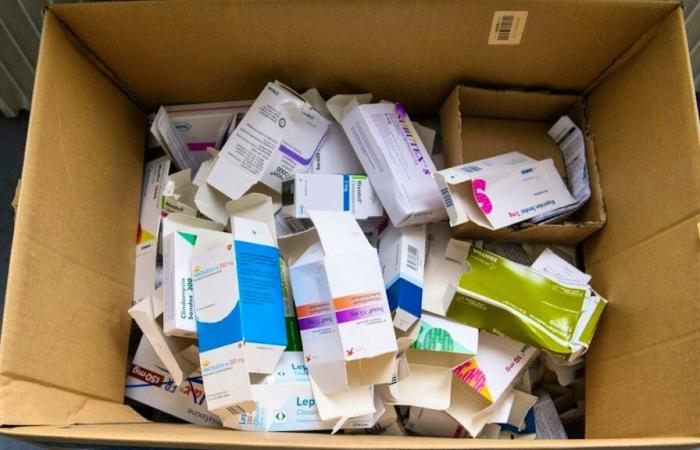Medicines returned to pharmacies or thrown in the trash in the event of intolerance, ineffectiveness or simply because the box was too big: Parliament no longer wants this waste. After the National in May, the Council of States also accepted two motions on Wednesday to combat the problem.
The senators adopted by a very large majority a text from the National commission which proposes to modify the legal bases so that the sizes of the boxes or the inappropriate dosages “can be taken into account when evaluating the economics of a drug. Goal: to encourage manufacturers to offer formats and quantities of pills that are as adequate as possible.
Because the motion provides for a refund from the manufacturer on the price of the medicine if its packaging leads to waste – which should encourage the pharma to offer economical packaging rather than having to reimburse. It also plans to authorize insurers or patients to demand, via the OFSP, more adequate packaging sizes if there is evidence of waste. Finally, it wants to allow the importation of medicines, if more appropriate packaging only exists abroad and is less expensive.
The Federal Council supported the motion. “The proposed measures are simple and pragmatic,” said Health Minister Elisabeth Baume-Schneider. And remember that if 10 to 20% of medicines are thrown away, this represents 300 to 600 million francs wasted per year in health costs.
The motion can be implemented quickly, according to the Federal Council, as part of the 2nd phase of measures aimed at curbing the rise in health costs.
4,200 tonnes of old medicines in 2020
The senators also unanimously accepted a National motion which tasks the Federal Council with presenting a report on the nature and extent of medication waste and proposing measures to remedy it. According to the Federal Office for the Environment, around 4,200 tonnes of old medicines and cytostatic waste from hospitals or the outpatient sector were disposed of in 2020 in Switzerland. This represents more than 2 billion francs, or 20% of the prices of medicines financed by the LAMal. They add to the medicines thrown away by households.






